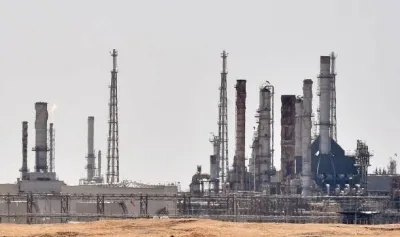Will Oil Prices Continue to Drop as Trump Delays US Decision on Israel-Iran Conflict?

Synopsis
Key Takeaways
- Crude oil prices have decreased.
- Trump's decision on US intervention is delayed.
- Negotiations may influence market dynamics.
- Potential military actions could disrupt oil supplies.
- India’s economy could face inflation risks from rising oil prices.
New Delhi, June 20 (NationPress) In a notable shift, crude oil prices have dipped in the global market, with the benchmark Brent crude futures falling by 2 percent to $77.24 a barrel. This decline comes as President Donald Trump announces he will take an additional two weeks to determine whether the US will intervene in the intensifying conflict between Israel and Iran.
White House Press Secretary Karoline Leavitt relayed Trump’s statement: “Given the substantial possibility of negotiations with Iran in the near future, I will finalize my decision on intervention within the next two weeks.”
Market analysts have noted that Trump’s comments regarding potential negotiations to reduce tensions in the Middle East have influenced oil prices.
In response to the current situation, Iran has cautioned against US intervention, warning that it could exacerbate tensions in West Asia, a key region for crude oil exports. A larger conflict in the Middle East could significantly affect oil supplies from Saudi Arabia, Iraq, Kuwait, and the UAE, potentially causing a sharp increase in oil prices.
Israel has focused its military actions on Iran’s nuclear facilities and missile sites, though its oil infrastructure has remained unscathed thus far.
Following Israel's recent strikes against Iran’s nuclear capabilities, oil prices surged more than 9 percent on June 13, pushing the Brent crude price past a five-month high of over $78 per barrel.
This escalation occurred alongside deteriorating talks regarding a nuclear deal between the US and Iran, with Tehran warning of retaliation against US military bases in Iraq and neighboring regions should it be attacked. Meanwhile, the US has positioned another aircraft carrier in the area to enhance its military presence.
According to Emkay Global, Iran produces about 3.3 million barrels per day (mbpd), accounting for roughly 3 percent of global output, and exports around 1.5 mbpd, primarily to China (80 percent), followed by Turkey. Iran is strategically located near the Strait of Hormuz, a critical passage for over 20 mbpd of oil trade from major producers like Saudi Arabia and the UAE. In the past, Iran has issued warnings regarding the potential blocking of this vital route.
Despite these tensions, the recent announcement by OPEC+ regarding an unexpected increase in production for July indicates that the oil markets remain sufficiently supplied. The Emkay report suggests that further cuts in Iranian oil supply could be managed without significant disruption.
Regarding the implications for the Indian economy, Emkay Global states, “Currently, we are maintaining our forecasts and expect CPI inflation to remain below the RBI’s estimate of 3.7 percent, averaging around 3.3-3.4 percent in FY26. It’s noted that a $10/barrel increase in oil prices leads to an annualized increase of 35 basis points in CPI inflation.”
Emkay Global has retained FY26 CAD/GDP at 0.8 percent, assuming Brent prices at $70/barrel, with every $10/barrel increase posing a potential upside risk of 0.4-0.5 percent under unchanged conditions.
“Our Energy team maintains a favorable outlook on India’s oil sector, supported by robust marketing margins and strong gross refining margins (GRMs), anticipating Brent prices to remain around $75/barrel for the rest of the year. Our estimates do not indicate significant downside risks,” the report concluded.







